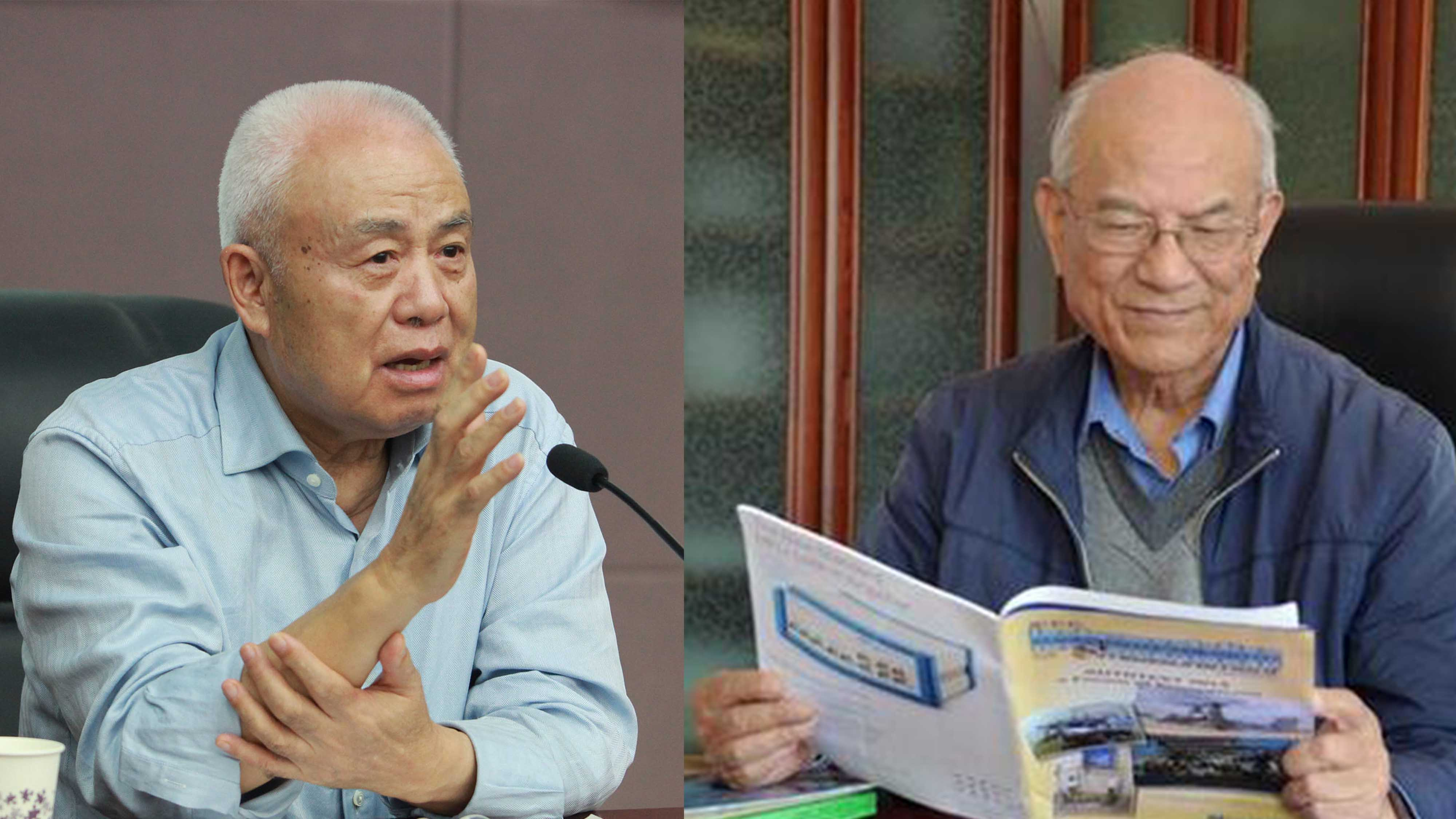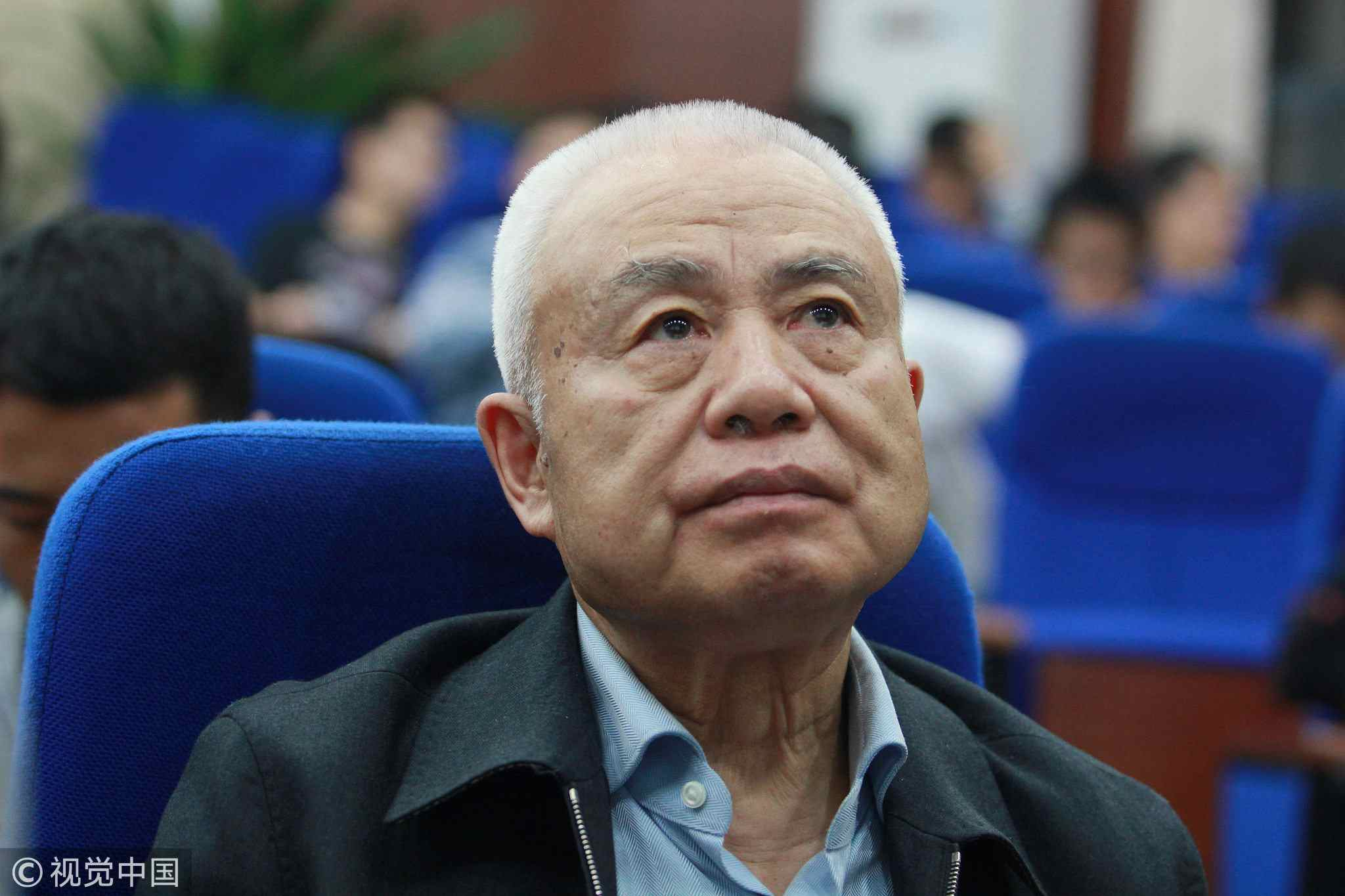
Tech & Sci
10:53, 08-Jan-2019
Radar expert Liu Yongtan, defense engineer Qian Qihu win China's top science award
Updated
10:44, 11-Jan-2019
CGTN
00:41

Two Chinese scientists, radar expert Liu Yongtan and defense engineering expert Qian Qihu, won China's top science award on Tuesday at the National Science and Technology Award Conference held at the Great Hall of the People in Beijing.
Chinese President Xi Jinping presented award certificates to them at the ceremony to honor distinguished scientists and their research achievements.
A total of 278 projects and seven scientific experts won awards during this year's ceremony, and the bonus of the State Preeminent Science and Technology Award has been lifted from five million yuan (730,000 U.S. dollars) per person to eight million yuan (1.17 million U.S. dollars).
Liu Yongtan: Founder of China's new maritime radar system

Liu Yongtan, China's top science award winner in 2018 /Photo via Chinanews.com
Liu Yongtan, China's top science award winner in 2018 /Photo via Chinanews.com
Liu Yongtan was honored for his work in array signal processing and faint signal detection.
His latest research helped improve the accuracy of radar-detected signals and target detection even against the backdrop of sea clutter, atmospheric noise or radio signals.
Under his direction, China's first high-frequency radar system became a leader in target detection in the 1990s.
It represented the modern radar and also has wide applications in aerospace, navigation, fisheries and coastal oil development.
Born in east China's Jiangsu Province in the late 1930s, Liu was elected to the Chinese Academy of Science (CAS) in 1991 and the Chinese Academy of Engineering (CAE) in 1994.
Qian Qihu: Constructor of China's underground Great Wall

Qian Qihu, China's top science award winner in 2018 /VCG Photo
Qian Qihu, China's top science award winner in 2018 /VCG Photo
CAE academician Qian Qihu was honored for his outstanding contributions to China's underground protective infrastructure.
Born in October 1937 in Kunshan City in eastern Jiangsu Province, Qian has spent over 60 years studying protection engineering, helping China to build an indestructible "Steel Great Wall" underground.
"Our protective construction is just like 'the Steel Great Wall.' The Great Wall used to resist invasions. Now we are talking about the underground Great Wall, not above the ground, but underneath," he explained.
If the ground structures are destroyed, the underground "cities" can provide shelter and store the basic supplies needed for survival.
It is a strategy considered by many to be as important as China's research and development of weapons.
"We are armed with aircraft and artillery, but we also need construction to protect ourselves, to protect our own command, to protect the security of the army, and to be able to strike the enemy safely," said the academician.
Many places that already play a part in Chinese people's lives also have links to Qian's work, including the Nanjing Yangtze River Tunnel, the Hong Kong-Zhuhai-Macao Bridge, and the giant South-to-North Water Transfer Project.
Qian also planned underground spaces for more than 20 key fortified cities, providing reliable foundations for China's future cities.
"Cities are building subways. Urban underground spaces are being developed and utilized. And integrating the ground and underground facilities is also necessary," he said.
1km

SITEMAP
Copyright © 2018 CGTN. Beijing ICP prepared NO.16065310-3
Copyright © 2018 CGTN. Beijing ICP prepared NO.16065310-3